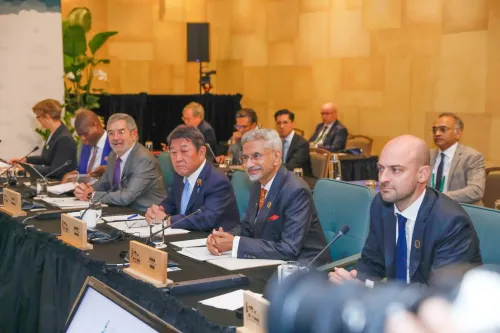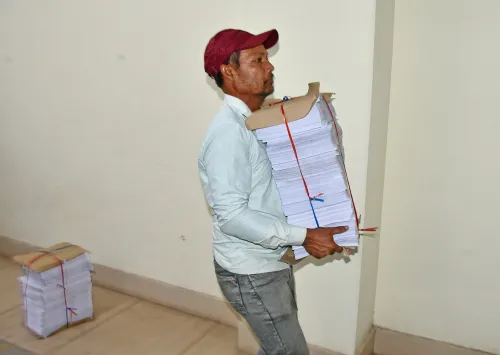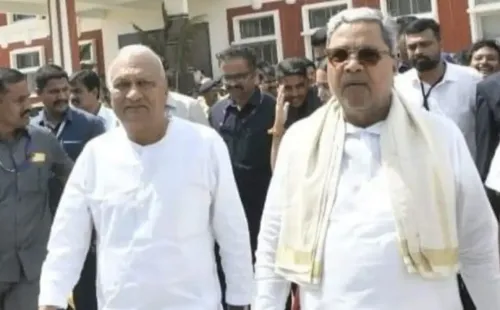Did Delhi Court Grant Bail to Businessman Samir Modi in Rape Case?

Synopsis
Key Takeaways
- Samir Modi granted bail in rape case.
- Bail set at Rs 5 lakh.
- Delhi Police opposed bail, citing potential flight risk.
- Allegations involve accusations of sexual assault.
- Modi's legal team claims allegations are extortion attempts.
New Delhi, Sep 25 (NationPress) A Delhi court granted bail to businessman Samir Modi, sibling of former IPL head Lalit Modi, in connection with an alleged rape case on Thursday.
The Saket Court approved his release on a bail bond of Rs 5 lakh, ensuring his attendance in future trial sessions.
On Tuesday, after examining arguments from both the complainant’s side and the defense, the court reserved its decision regarding the bail request.
The Delhi Police opposed the bail, claiming that the accused holds significant influence and might evade legal proceedings.
Last week, Samir Modi was apprehended at Delhi's IGI Airport following a Look-Out Circular (LOC) issued against him.
His arrest followed a First Information Report (FIR) lodged at the New Friends Colony Police Station by a woman who alleged a prolonged relationship with Modi since 2019 and made serious allegations of sexual assault.
Modi's legal representatives have repeatedly refuted the claims, labeling them as “false and concocted” and indicating a motive of extortion.
In a public statement, Modi's attorneys emphasized that he had filed complaints in August against the same woman, accusing her of attempting to extort Rs 50 crore.
The statement questioned the validity of the woman’s allegations, asserting: “A thorough examination of the alleged complaint reveals these serious accusations to be baseless and sensationalized. Claims refer to incidents said to have begun four years ago, raising concerns about the motives behind this complaint.”
Furthermore, it was noted that Samir Modi, involved in various business litigations, “has complete faith in the judiciary of our nation and the investigative agencies that will ensure a prompt resolution to this matter.”
The Saket Court had previously mandated in-camera hearings after the complainant’s attorney requested private proceedings due to the sensitive nature of the case.









